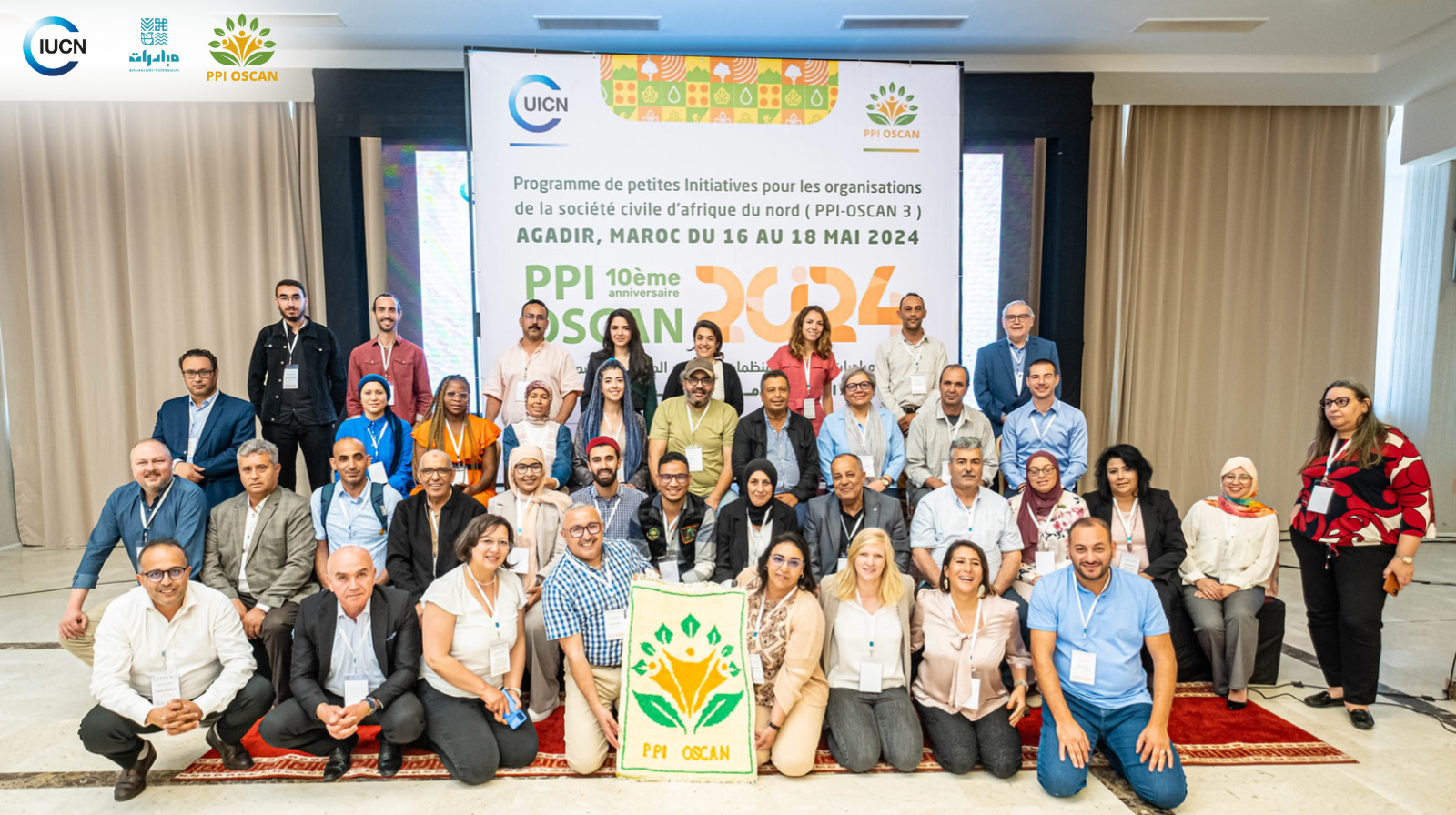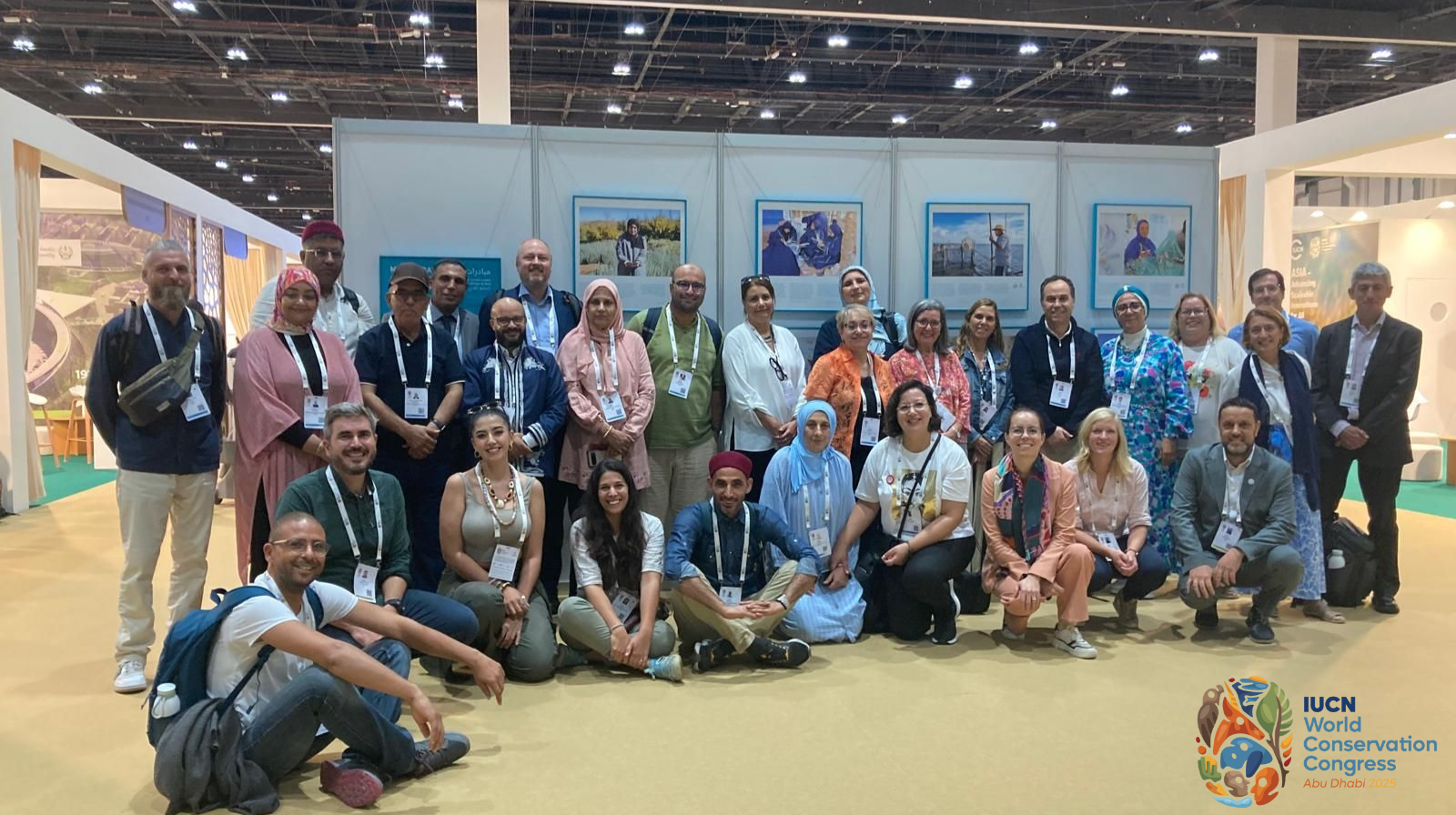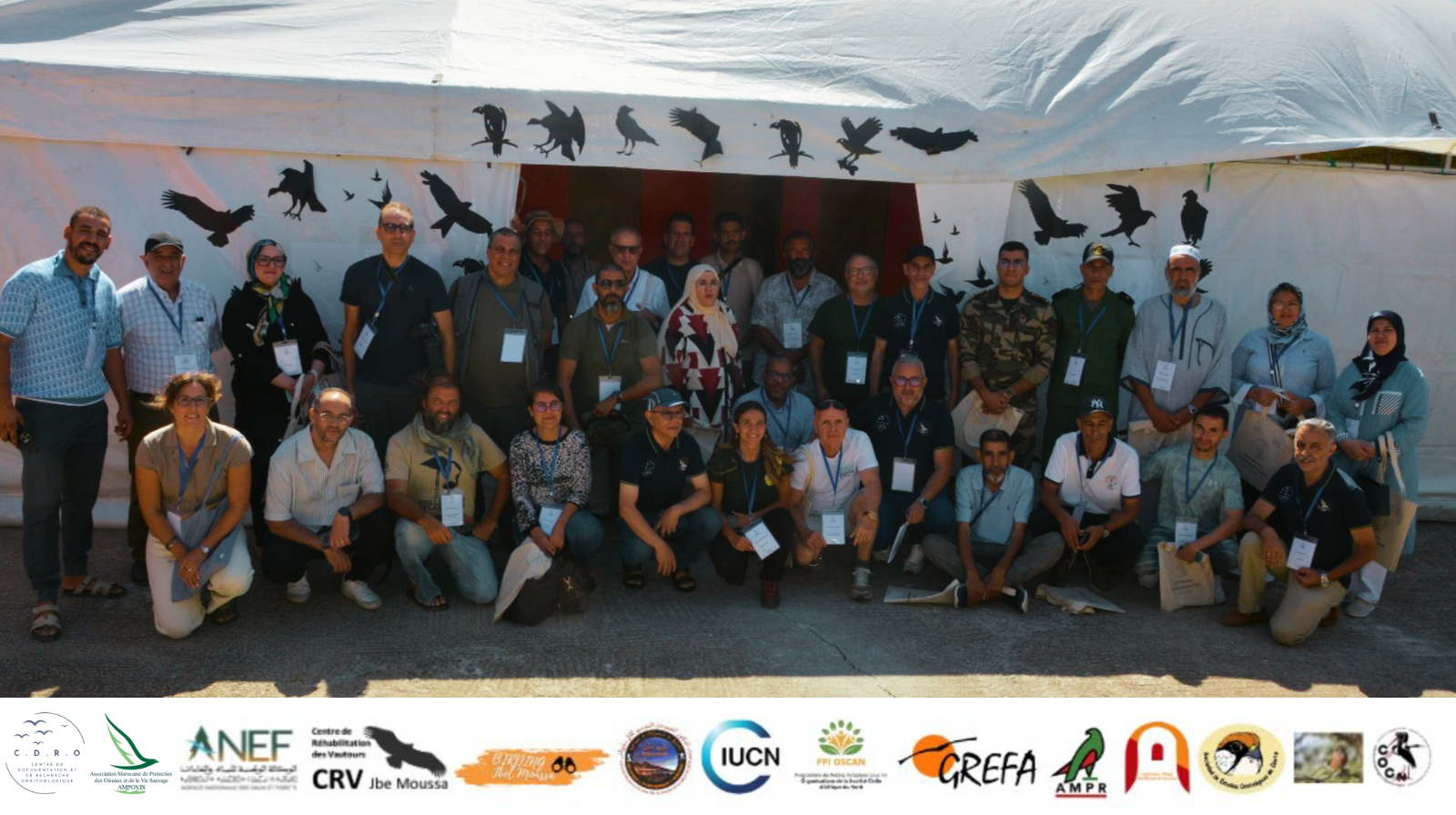 An ambitious project to preserve and enhance the Ammeln oases
An ambitious project to preserve and enhance the Ammeln oases
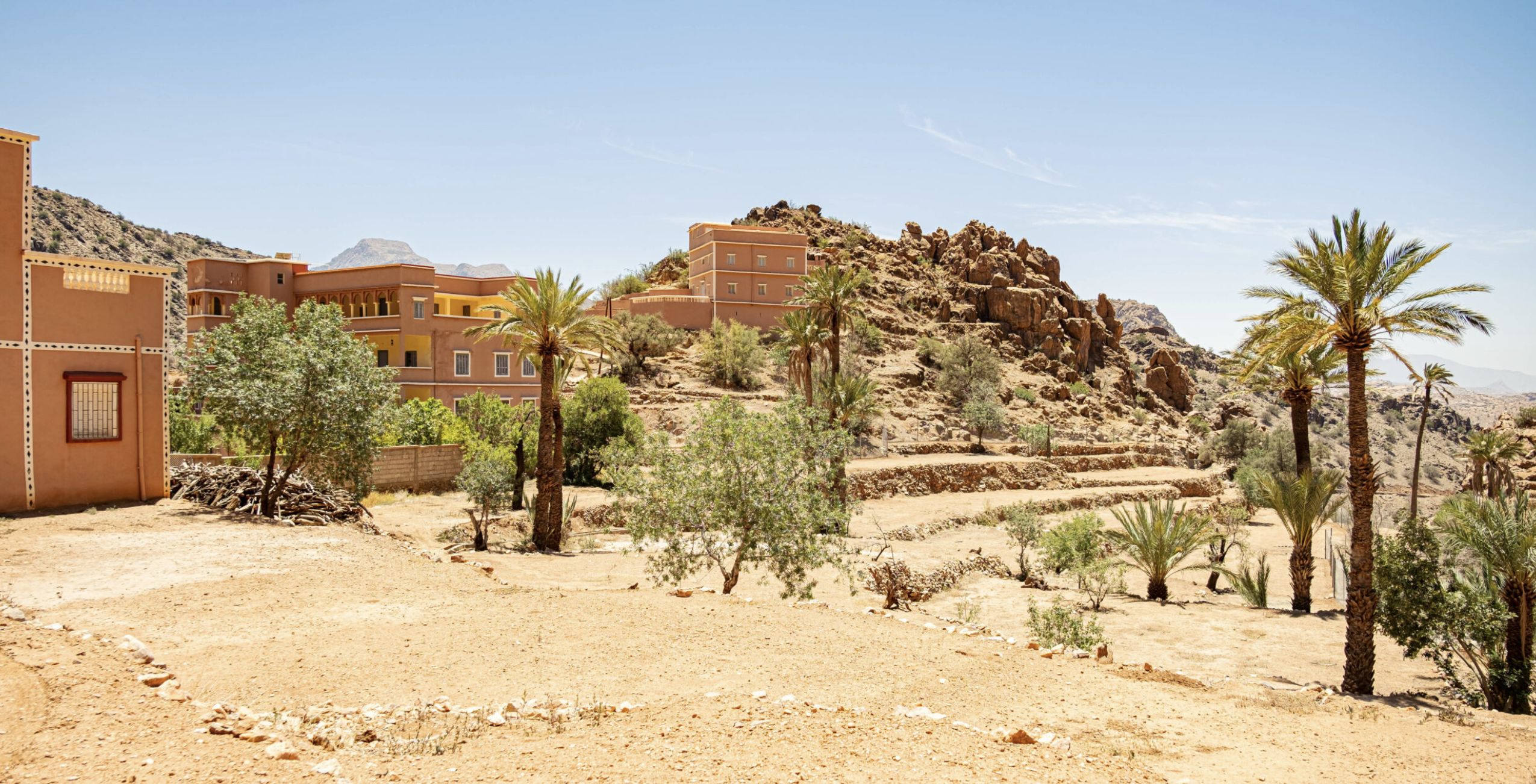
Since 2023, the association Alliance Civile pour l’environnement AmmeIn has been implementing the project “Biodiversity conservation and agro-forestry development in the Ammeln Oases”, funded by IUCN Med as part of the PPI OSCAN 3 program.
Designed to reconcile preservation of the SIBE Jbel Lkest ecosystems with local economic development, this project is based on a participatory approach involving communities, territorial institutions and civil society structures. Through a combination of concrete actions – ecological monitoring, valorization of agricultural waste through biochar production, technical and institutional capacity building – the project has contributed to structuring sustainable local governance around the Aguelz and Agchtim oases, located in the province of Tiznit.
A structuring framework and a local dynamic
As soon as the funding agreement was signed, a steering committee (COPIL) was set up to coordinate the project’s implementation, in conjunction with local authorities, the Water and Forestry Department, the Civil Protection Department and local cooperatives. The project was carried out in two phases, following the objectives defined around two major axes:
- Active participation in conserving the biodiversity of the SIBE Jbel Lkest.
- Sustainable development of agro-forestry resources in the pilot oases of Aguelz and Agchtim.
Results achieved in biodiversity conservation
The project has helped to structure local environmental governance through :
- The establishment of 2 concerted consultative mechanisms bringing together the main local players.
- The organization of 12 multi-stakeholder consultation meetings, exceeding the initial target of 10.
- 15 field visits to monitor ecosystems.
- The creation of 2 wildlife monitoring systems, contributing to the protection of sensitive species such as the Cuvier’s gazelle and the bighorn sheep.
- 20 farmers trained in biodiversity conservation techniques, with concrete actions carried out in their villages (planting, clean-ups, volunteer monitoring).
Local development and resource enhancement
One of the major results of the project is the introduction of biochar production as a tool for valorizing agricultural waste and improving soils:
- 2 complete organic charcoal production units have been installed (instead of the one initially planned), in the Aguelz and Agchtim oases.
- 2 technical premises have been fitted out to house these units.
- 2 three-wheeled vehicles were purchased to transport raw materials and processed products.
- 35 tonnes of agricultural waste were recycled to make briquettes and fertilizer.
- Pilot production of 500 kg of biochar.
- Several commercial orders for a total volume of 5 tonnes were received from local restaurants and hotels.
- A formal partnership with Green Ouzal has been signed to support the structuring of the marketing circuit.
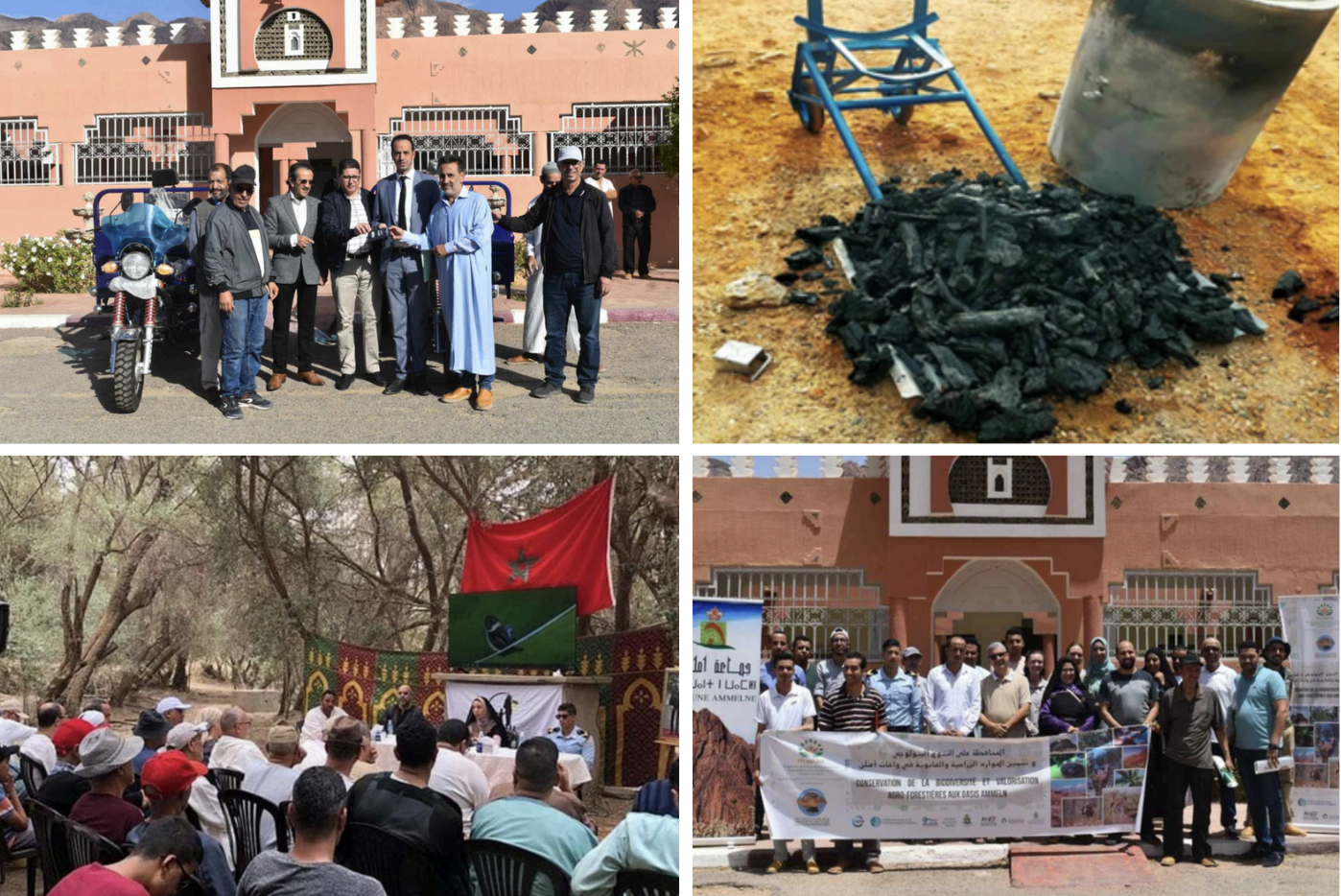
Risk awareness and fire management
Faced with the increased risk of fire in oasis areas, the project has strengthened local resilience through :
- Training 20 community members in fire prevention and fire-fighting techniques.
- Implementing awareness-raising measures for local residents.
- The installation of access paths and fire prevention signage to facilitate intervention in the event of fire.
Mobilization, communication and outreach
Over and above its operational results, the project has been part of a dynamic of skills development and outreach on several levels:
- 6 Alliance members, including one woman, took part in 7 training cycles, 2 national workshops and 2 regional workshops as part of the OSCAN PPI.
- 2 120-hour online training modules were validated on IUCN Academy, covering effective communication and financing strategy for environmental CSOs.
- The Alliance signed 5 partnership agreements, including 3 as part of the AWRACH 2 government program, enabling the mobilization of 9 workers for 4 months, representing 940 working days.
- The Alliance’s official website was launched with the support of the program, strengthening its visibility and its capacity for digital mobilization: allianceammelne.org
Sustainability and strategic outlook
The project has laid the foundations for a long-term sustainability strategy, focusing on :
- The creation of a Jbel Lkest Biodiversity Ecomuseum, open to the general public, researchers and tourists.
- Setting up a Scientific Observatory, in partnership with academic institutions, for ecological monitoring, data collection and research support.
- The submission of an application to join IUCN as a member organization.
- Selection of the Alliance as a finalist in the NABTA program, initiated by AFD and the INCO Campus, aimed at building the capacity of environmental initiatives with a strong regional impact

The experiment conducted by ACEA, with technical and financial support from IUCN Med as part of the PPI OSCAN 3 program, is an exemplary model of convergence between biodiversity conservation, community development, the circular economy and territorial innovation. The results achieved testify to the strong commitment of local players and the relevance of participatory approaches. Today, this initiative provides a solid foundation for spreading to other territories facing similar challenges in the arid and semi-arid zones of the Maghreb.
- Performance period: 24 months
- Contact: +212 662806178
- Address: P. 304 Tafraout Centre (Province of Tiznit)
- Email : allianceammeln@gmail.com
- Website : www.allianceammelne.org
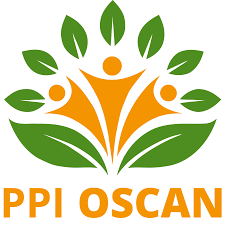 This project is part of the third phase of the Small Initiatives Program for North African CSOs (PPI OSCAN), financed by the French Global Environment Facility (FFEM), the MAVA Foundation and the Sigrid Rausing Trust Foundation. Subsidized projects aim to conserve species and ecosystems with remarkable biodiversity, and to enhance the benefits of conservation and sustainable livelihoods. To find out more about OSCAN 3 PPI projects: 5.Projects – MUBADARAT (mubadarat-uicn.org)
This project is part of the third phase of the Small Initiatives Program for North African CSOs (PPI OSCAN), financed by the French Global Environment Facility (FFEM), the MAVA Foundation and the Sigrid Rausing Trust Foundation. Subsidized projects aim to conserve species and ecosystems with remarkable biodiversity, and to enhance the benefits of conservation and sustainable livelihoods. To find out more about OSCAN 3 PPI projects: 5.Projects – MUBADARAT (mubadarat-uicn.org)



